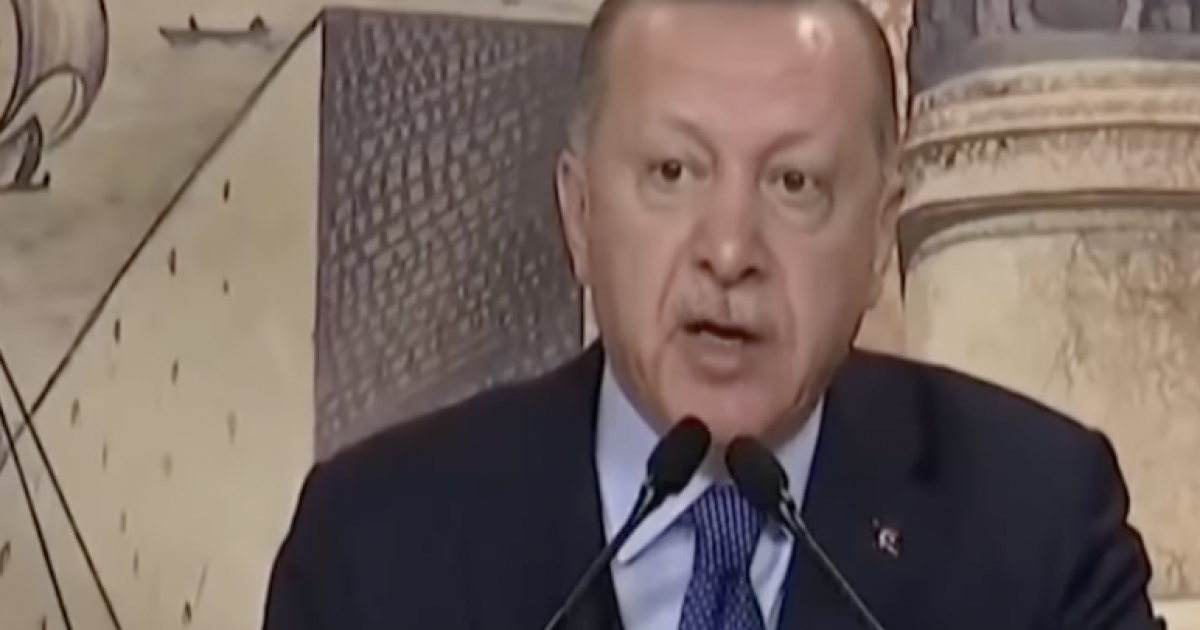
Has the US’s close relation with Turkey become a liability?
The US had had warm relations with Turkey that date back to the Cold War, when Turkey became a member of the North Atlantic Treaty Organization (NATO) in 1952. Throughout the Cold War, Turkey served as a useful partner for the US in containing the Soviet Union.
However, geopolitics is not a static field. Burak Bekdil, a Turkish journalist, wrote a piece at the Gatestone Institute titled “Turkey and the West: Drifting Further Apart” showcasing the country’s fraying relations with the West.
Recently, Turkish relations have largely withered due to Turkey’s controversial invasion of Northern Syria, where the US’s Kurdish allies are situated. This has sparked considerable debate in US foreign policy circles about the nature of US relations with the country. Turkey’s funding of ISIS and other Islamist groups like the Muslim Brotherhood has also been a cause for concern among Westerners as well.
According to a US State Department report released in 2021, Turkey had been providing “tangible support” to the Sultan Murad division in Syria. This is a faction of the Syrian opposition that has received significant Turkish aid and is a group that allegedly recruits and uses children as soldiers. Similarly, the way Erdogan has weaponized migration by threatening to dump Middle Eastern migrants into Europe unless pliant EU countries cough up money in return shows the lengths Turkey will go to flex its muscles at Europe’s expense — another reason for the West to be concerned with the Black Sea power.
However, in his piece, Bekdill argues that the deteriorating relations between the two countries run much deeper.Some points that Bekdil raised in his piece stood out among Turkey’s latest foreign policy deviations:
- In 2010, Turkish and Chinese aircraft carried out joint exercises in Turkish airspace
- Turkey joined the Shanghai Cooperation Organization (SCO) as a dialogue partner
- In 2013, Turkey revealed that it chose a Chinese company to build its first long-range air and anti-missile defense system, although Turkey ended up scrapping the system.
Ankara’s acquisition of the Russian S-400 system in 2017 was arguably the most controversial arms move it made. This resulted in Turkey’s being shut out from access to the F-35 fifth-generation fighter jet and also triggered U.S. CAATSA sanctions against Turkey.
Culturally speaking, Turkey is drifting away from the West. As its secular Kemalist factions start to demographically decline, Turkey’s politics will likely take a more Islamist drift with the ascendance of a majority Islamist population. Bekdil highlighted results from Turkish pollster Areda Survey that demonstrated the Turkish populace’s growing alienation with the West:
- 54.6% of Turks view the U.S. as the biggest security threat to their country while 51% think the biggest threat is Israel; 31.1% think it is the United Arab Emirates; and 30.7% think it is Saudi Arabia.
- 35.5% of Turks consider the U.S. unreliable; 32.8% think it is a colonialist state.
- 72.2% object to any kind of cooperation with the U.S.
- When asked with which one of the two countries Turkey should develop its relations, 78.9% said Russia against 21.1% who defended cooperation with the U.S.
- 58.2% of Turks think that Russia is their strategic ally.
- 69.3% think that the acquisition of the Russian S-400 system was the right decision.
Due to the growing tension between Turkey and the West, former Trump administration national security adviser John Bolton has become a member of the advisory council of the Turkish Democracy Project. He joined the non-profit “to shine a light on the darkening situation” in Turkey. According to its website, the TDP is “a nonprofit, non-partisan, international policy organization formed in response to Turkey’s recent turn away from democracy and toward authoritarianism.”
“It’s time to sound the alarm on Turkey,” Bolton declared on Twitter. Bolton’s beef with Turkey has largely been with regards to its drift towards Russia. The curious thing is that Russia’s decision to sell S-400s to Turkey largely conforms with the Primakov Doctrine that the late Russian diplomat Yevgeny Primakov advocated for. It essentially consists of a foreign policy that seeks to counterbalance US influence and establish a multipolar world order. Part of this doctrine calls for Russia to exploit contradictions in NATO – such as the presence of Turkey as the most authoritarian and increasingly Islamist of the member nations – by playing Turkey off other NATO members.
This is the reality of the new multipolar world where the US won’t throw its weight around and be able to completely monopolize the current world order. Turkey has a long tradition of hedging and playing off great powers against each other to maximize its power on the world stage. As a middle power, it will seek to hedge its bets and play the West off the East.
Though, as geopolitical activity moves towards Eurasia, Turkey will likely look East for alliances and strategic partners.
In all honesty, the US should dump Turkey as an ally. Nevertheless, it should not go as far as the likes of Bolton and company want to go by implementing regime change. These efforts are likely designed to leverage Turkey’s Turkic identity and Sunni background to create Jihadist pipelines that go all the way to China’s Xinjiang province in efforts to destabilize China.
After all, we’re now in the era of great power competition and neocon hawks will go back to the time-honored tradition of using Islamists to destabilize geopolitical foes. Nevertheless, the US must pursue foreign policy retrenchment.
The first way it can do this is by ending its alliance with Turkey and then gradually re-shift its focus to the Western Hemisphere.



